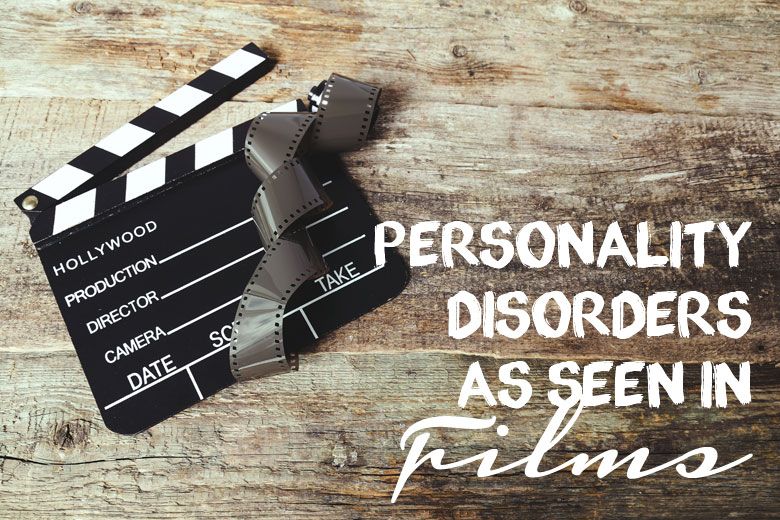A note from Tine: Welcome to another edition of Tim Talks! For those who are new to Beautyholics Anonymous, Tim Talks is a new series on the blog where my husband, Tim, will be sharing his knowledge to help raise mental health awareness. Tim is a psychiatrist who works in metro Melbourne. His area of interest is child, adolescent and youth psychiatry.
Today, he talks about something I find highly fascinating because it never occurred to me that there are things that I do that are considered my defence mechanism to deal with little things that stress me out in any way. The title of the post “Stuck In Our Ways” is really apt because I am stuck in my own way to protect myself against the slightest sort of stress and/or negativity. Is it a good thing or a bad thing? Read on to find out.

Before entering into the field of psychiatry, I have always been curious to find out what underlies certain behaviour that we observe in people we come into contact with. For instance, why do some sensible people get entangled in self-destructive patterns such as substance misuse, restricted eating or gambling?
Sigmund Freud was one of the earlier proponents of this term ego defences, which is our mind’s unconscious efforts to protect against unwanted anxieties, feelings or impulses when we are encountering stressful situations. The thing to emphasise here is that this is an unconscious mechanism, and it is not confined to each of us using one defence in all situations. As such, we do have a limited degree of control over the function of these defences.
Various forms of psychotherapy try to unpack and increase our awareness of our defences, so that we can make conscious attempts to modify our responses to these defences.
Why do we need defences?
In a lot of ways, our defences are our ‘default’ setting to how our mind deals with the barrage and bombardment of intense feelings and impulses, day in and day out. It is meant to provide a protective function, as we can maintain our normal functioning and stay focused whilst at the same time keep some control of the degree of stimulation that we get from the stressors around us. It is likened to how our physical body can maintain balance by automatically and continuously making small adjustments to our core and leg muscles without our awareness.
Are there good and bad defences?
We generally look at defences as those that are less adaptive and some that are more adaptive defences. The less adaptive defences suggest that it may result in more disruptions in our functioning.
Below are some of the common defences that are used.
1. Humour
This is where one expresses uncomfortable ideas and feelings into jokes which give pleasure to others. The jokes usually retain part of the innate distress, but they are countered by witticism, sometimes by self-deprecation.
(Tine: I didn’t realise this until I read this article by Tim, that I’ve been using humour as a defence mechanism ever since I was very young. I’ve always thought it slightly strange that I tend to use humour to deflect feelings of stress and anxiety but as long as it worked, hey, I’m good with it. Well, whaddyaknow, it’s actually a real thing people go through.)
2. Sublimation
This is the process where unacceptable or uncomfortable impulses and feelings are converted into more useful or acceptable forms.
Example: Sporting pursuits are a useful example where feelings of rage and frustration can be converted into physical aggression on the field.
3. Repression
This is the unconscious blocking of unacceptable thoughts, feelings and impulses. This is quite common especially when someone struggles to recall certain details or fragments of their past memories. Sometimes the experiences have been filtered and altered and may not reflect what the actual events would have portrayed.
Example: Due to significant emotional abuse in his/her early years, a person may not be able to recall certain pieces of their childhood memories.
4. Displacement
This is the redirecting of unpleasant feelings, impulses or thoughts originally intended at one person or object but taken out upon another person or object.
Example: Someone getting been told off by his employer, and instead of channelling this frustration at his employer, he goes home and kicks the cat. Poor cat.
5. Intellectualisation
This is quite a common defence that is employed to have a disconnection from the emotional significance of stressful circumstances. Instead of dealing with the painful emotions, intellectualisation is where we overthink and in so doing distance ourselves from processing the emotions associated.
Example: When diagnosed with a terminally ill condition, significant efforts are poured into researching the condition and treatment.
6. Projection
This occurs when one perceives unacceptable or unwanted feelings or qualities as coming from outside themselves.
Example: The fear and insecurity that arise from others toward sensitive topics such as religion and sexuality, which can further drive the polarising views within the community.
7. Denial
Commonly this is where unacceptable feelings or thoughts are disavowed.
Example: A person denies having any difficulties with his/her alcohol misuse, and does not acknowledge there to be a problem.
8. Regression
We can also sometimes revert to earlier coping strategies, such as becoming more dependent and reliant on others when stressful circumstances are present.
Example: Leading up to exams, we can sometimes rely more on our support system (for instance, cooking prepared by mum).
How do I make sense of my defences?
By examining how we interact within relationships and our pursuits and identifying which defences we commonly use, we can anticipate how we might respond to these scenarios in the future. A lot of times we see the end-product of these defences, which are the actions that are carried through, but if we can reflect on these feelings or thoughts that are arising, we can consciously modify the outcome. An example is in the above instance of displacement, a less damaging action might be to divert the anger and frustration at an inanimate object rather than the cat.
I know I have used a lot of confusing terminologies and I am happy for any questions to further clarify these in the comments section.
Until next time, I wish you all good mental health.













Tim, I have a question about repression… Is there is a way to recollect a person’s face from the past if the brains blocked this part of memory, apart hypnosis therapy?
Keen On Beauty recently posted..“Smoke and Mirrors” by Jane Iredale
Tim: Hi Olena, that is a good question, I am not an expert in this area, but there has been some suggestion that sometimes recovered memories may not be accurate, as the nature of repression can also distort the actual traumatic events. Aside from hypnotherapy, some individual trauma-focused psychotherapy can be avenues to better understand traumatic past experiences. There are also centres against sexual assault (CASA) that have experienced clinicians who can work long-term with patients to help them slowly process past traumas. It is important to note that the process and journey can be a long one, and it is crucial finding experienced clinicians in trauma work for this purpose.
What a great post Tim & Tine! I now know that I use sublimation (I love to run when I feel stressed…or eat depending on the day!) and intellectualisation – I’m a terrible over analyser! I think it’s great to know that it’s a tendancy you have so when it happens you recognise it and can try to replace unhealthy behaviours with healther ones! x
Tim: Hi Belinda, I’m glad you enjoyed the post. Stay tuned as I will be covering abit more in future write-ups about personality development and personality disorders, which will shed some light into how some personality types use certain defences more frequently.
Really interesting. Thanks.